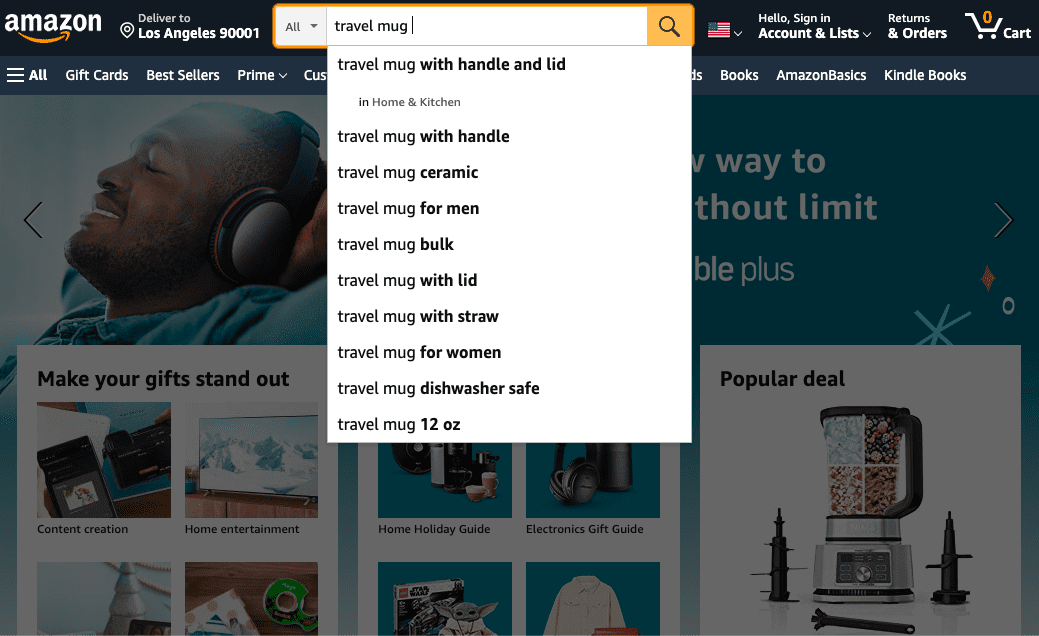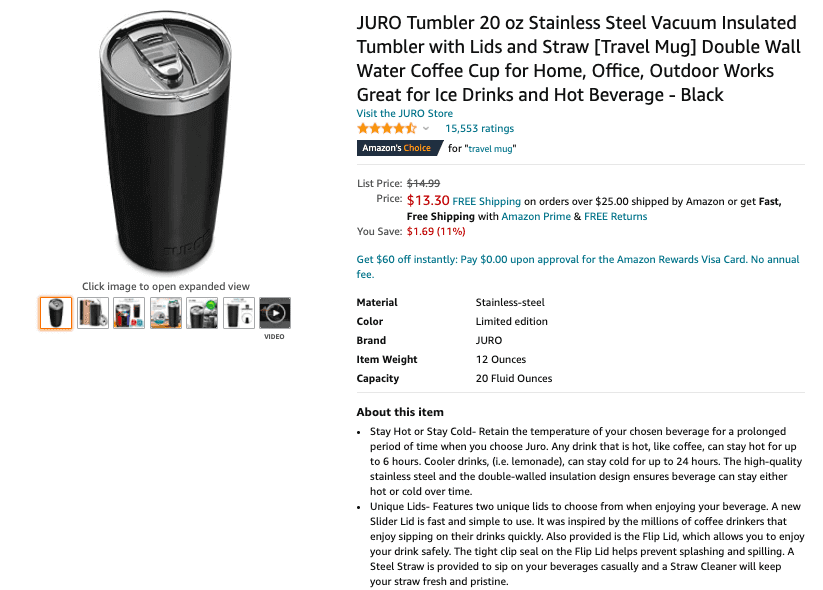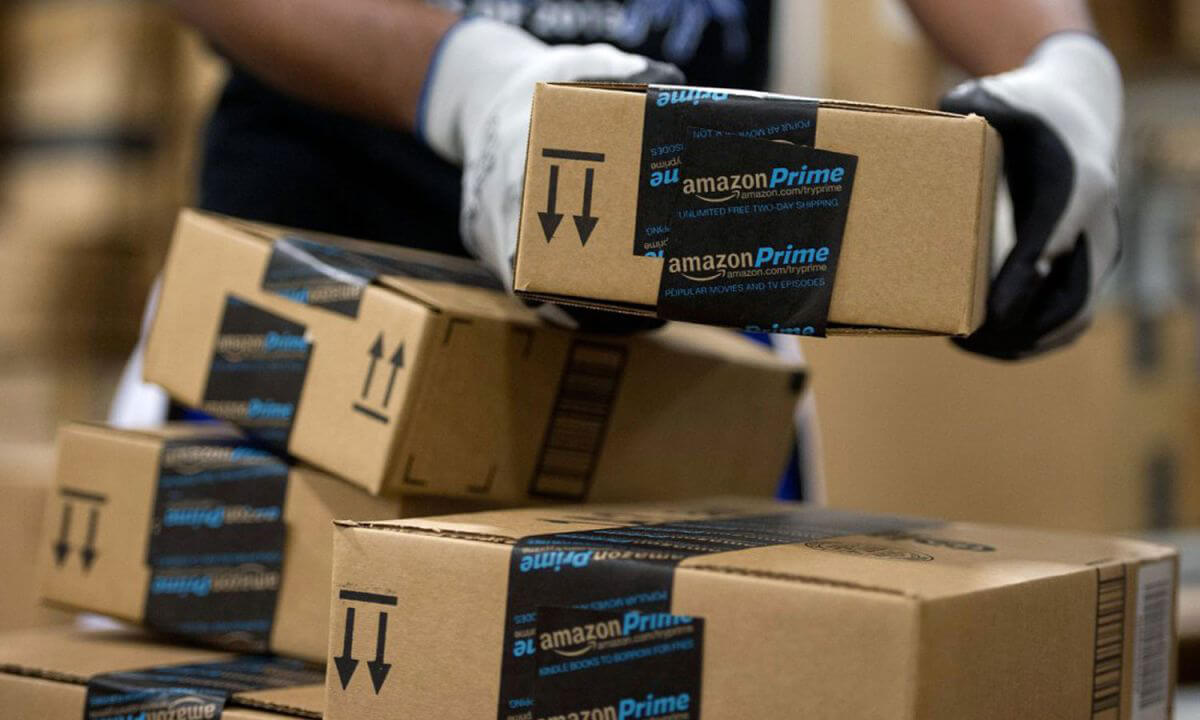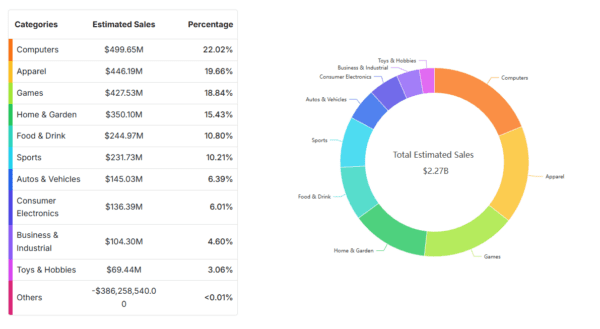As the world’s leading e-commerce platform, there are over a billion products for sale on Amazon, of which approximately 606 million are found on the U.S. marketplace alone. With these whopping figures in mind, to say that competition is fierce would be an understatement.
If you’re an Amazon seller, then there’s a huge chance that the products you’re carrying are also listed by others on the platform. So, how exactly do you get customers to click on yours instead of theirs?
Well, that’s where keywords come in.

Why are Keywords Important?
In the simplest of terms, keywords are words or phrases in your content that make it possible for people to find your listings via Amazon’s search engine. This means that if your descriptions match or are similar to what people are searching for, then the first results returned to them will likely be your product listings.
For instance, say that one of the items you’re selling is a travel mug and that its description is something along the lines of, “A stainless steel travel mug that is lightweight and durable, perfect for keeping your coffee hot all day!”
If a customer goes on to Amazon and puts “stainless steel travel mug” in the platform’s search engine, then your product will show up at the top of their results. Because of this, they’ll most probably hit purchase on your listing.
People use search engines to wade through the billions of items available on Amazon, which is why the keywords you use can either make or break your listing. Contrary to popular belief, though, optimizing your listings for Amazon’s search engine isn’t as simple as flooding your listings with words and phrases that are relevant to your products. In fact, this can actually backfire on you since it may end up making your items look less legitimate and less trustworthy.

How to Conduct Amazon Keyword Research
Simple tricks to follow while doing amazon keyword research-
Many online sellers fall into the trap of thinking that researching keywords for their Amazon storefronts is the same as keyword research for search engine optimization (SEO). However, the latter focuses on Google’s algorithms and rankings whereas the former is geared towards Amazon’s own search engine.
With this distinction in mind, it’s clear that a different approach must be taken when you’re trying to figure out what set of keywords to use for your Amazon product listings.
Generate Seed Keywords
“Seed keywords” is the term used to refer to the words or phrases that describe exactly what your product is. For instance, if you’re selling laptop desks, then your main seed keyword is “laptop desk.”
Having between 4 and 5 seed keywords is highly recommended. In addition to your main one, make use of other synonymous search terms that people might use when trying to describe the product. Think about the different ways that you would personally call it. From the laptop desk example above, your other seed keywords could be “laptop table,” “laptop stand” or even “mini-computer table.”
Expand Your Potential Keywords
Once you have your seed keywords, it’s time to expand them to a longer and more exhaustive list of other potential keywords that you can use. To do this, take a look at Amazon’s search suggestions by inputting your seed keyword into it. The platform will then provide you with a list of related keywords, all of which have been used by customers in their own searches.
Another thing that you can do is to check your Google Rankings. A lot of customers use Google to search for a particular product before clicking on a link that leads them to Amazon, which is why your website’s ranking keywords should also be incorporated in your listings.

Make Use of a Keyword Tool
The methods discussed, so far, all involve manually looking up keywords yourself before inputting them into your listings. Both of these may be effective, but they can also be incredibly time-consuming. Unfortunately, not a lot of online sellers have time on their hands, especially if they’re running multiple digital storefronts.
To make your search for keywords quicker but no less effective, make use of a research tool that generates a list of words and phrases that are relevant to your product. Many of these programs also provide additional information, such as the exact number of people searching for that particular keyword or even where they’re searching from.
The lists that these tools create are usually very exhaustive, so take note of several factors before picking keywords to use. For instance, those that have high traffic and high competition, as well as those that have medium traffic and low competition will prove to have the best returns.
There are a lot of keyword research tools out there, so if you’re considering using one of them, then be sure to check out the following:
Be Smart About Inserting Keywords
When it comes to inserting keywords into listings, many Amazon sellers mistakenly believe that littering their product descriptions – and even their product titles – is the best way to go. Again, though, this is far from the truth.
Instead of haphazardly including keywords, be aware of their known high-impact places instead. For instance, only the most relevant ones should be included in the product title since this field is limited to a maximum of 200 characters.
With bullet points and product descriptions, refrain from stuffing them with all the keywords that you’ve generated since doing so can leave the viewer confused or even annoyed by how robotic the language sounds. Keep in mind that these sentences are also read by human beings and not just Amazon’s search engine algorithms – yes, incorporate keywords into them but balance these out with actual explanations of what the product is.

Consider the Market
If your listings are still failing to rank, then perhaps your keyword search has been too geographically narrow. Amazon is a global marketplace, used by people from all over the world. This means that keywords based on American data won’t work in Canadian and European markets, even if most of their citizens are English speakers.
Those selling outside the United States should also consider their market’s high-traction keywords. Even tweaking a single word in your product description can end up making a wealth of difference.

Take Your Amazon Sales to the Next Level with SellerChamp™
Nowadays, it’s normal for online sellers to be active on a slew of e-commerce platforms. While this strategy definitely works, it can also be incredibly time-consuming, especially when it comes to updating product listings and inventory management.
But thanks to SellerChamp™, these sorts of headaches are completely eliminated.
With SellerChamp™, listing products across countless marketplaces takes only minutes. More than that, though, the program also pulls important information, like descriptions and prices, and uploads them instantly onto whatever platform is being used.
They even take care of inventory management and price changes, which means that online sellers no longer have to manually update the backend of all their digital storefronts. Rather, they can simply sit back and relax as SellerChamp™ does the work for them.
If you want to boost your Amazon sales without adding stress to your life, then SellerChamp™ is your best bet.

Final Thoughts
Given the stiff competition in its global marketplace, making it as a successful Amazon seller can prove to be difficult. But it’s far from impossible, as long as you’re savvy and include relevant keywords into all your product listings.
















